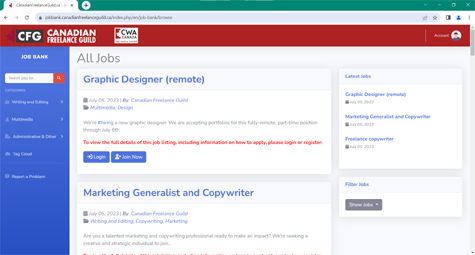I still use old-school email to promote myself to potential new clients as well as for keeping in touch with select past clients. They appear as friendly, newsy "updates" but of course their real purpose is to facilitate future work. I'm talking about using email as a general purpose promotional tool and not about writing "genuine" emails or specific pitches. My idiosyncratic method involves a hybrid between "real" email and those conventionally mass produced. Over the years it has proven most effective dealing with select clients when used judiciously.
What it does...
Using email for self-marketing is ultimately about building and maintaining your professional relationship with clients. On its own it may not not result in a sale. (In this it differs from a specific pitch email.) Sales will usually require followups by phone, in person or on social media. But...
* It helps keep your brand in the reader's mind.
* It fosters confidence in your expertise and abilities by reminding them of past successes.
* It gives them time to reflect on their own needs and how your new ideas might fit into them.
Of course, you have already tried to figure them out and tailor your content to them. I send my promotional emails out on a regular basis to a small number of past clients but only when I have something worthwhile to say. Readers will quickly know what to expect from you. Your previous promotional emails will impact upon their willingness to look at your future emails of any kind.

Spamalot or not at all a lot
In general, the most conventional use of promotional email involves a simultaneous mailing of a generic message to multiple recipients, usually via an automated service. I'll talk about that in a moment. Note there is a very thin line between creating an effective marketing tool and spam. I define spam as impersonal email that has been sent without prior contact or expressed interest from its recipients. A well crafted personalized promotional email that is expected, on the other hand, can be a welcome piece of communication with content of potential value to its recipients. So, news alert: don't send out spam. Many companies still do. I don't say they can't get positive responses - especially if they send out untold thousands of pieces. But in my experience, spam ends up unread. Worse, it can get your account "blacklisted" and any future emails blocked.
When to do it
I sometimes create a special promotional email to followup cold calls if they OK it. Emails can expand and clarify concepts briefly discussed in a phone call. They can add credibility to your brand with more about your background. They can help push a fledgling relationship into a more active phase. However, I mostly use such emails to keep in touch with a select number of previous clients with whom I already have a preexisting relationship. It helps remind them of my successful work in the past and can give them good reasons for employing me again. I effectively bypass the whole spam dilemma by creating unique emails for each recipient and sending a number of them out one at a time. Effectively, it is a "real" email and so there is no problem sending them out "cold" or otherwise.
How I begin
Each time I begin by creating a "master" email. It is my template from which my final "personalized" multiple efforts will be hewn. It enables me to decide upon and be consistent with my "message" as well as save some time because I won't have to write each email completely from scratch. I usually open with one current topic reflecting my known professional interests. If I have other areas of specialty, select clients will get a relevant email forged from another template. Technology, food, medicine, pop culture, etc. are all fodder.
Most importantly, this will also be a topic relevant to the reader and their own professional interests. Then I add my own spin. If I have a reputation for humour, it will be humorous. If my brand provides psychological insights, my comments will reflect that. This opening segment is to hook the reader. To do this, I have to give them something worth reading. Something interesting or useful or entertaining. Preferably all of the above. By adding my "take" I remind them why I am good at what I do and how I go about doing it. Next I usually write about something I have done recently which is relevant to the theme of the email. If it is online, I provide a link. If it has been favourably reviewed, I quote the reviews. This succinctly reinforces my reputation.
If the email is a followup to a cold call, it should deal with that call's topic. This may require a special "one-off" email. If it is just "keeping in touch" with previous clients, as most of mine are, it will usually relate to issues and themes previously worked on or of continuing mutual interest. Of course, I want more work. So if it's just "keeping in touch" I usually close with a relevant idea in general terms that I'm willing to discuss more fully if they're interested. It gives them reason to keep in touch and possibly brainstorm with me.
This "keeping in touch" style of pitch differs from any actual "genuine" email containing a specific pitch. Those should also be strategically employed whenever appropriate. If it's a followup to a specific verbal pitch, I then suggest action now be taken. In any case I try to motivate action by pointing out a timely aspect to my topic's relevance or else a time limit to my availability to work on it for them. The point is to try to induce a decision - now. Even a "no" has its advantages - you can move on.
Personalizing it
Up to this point I have a viable but generic email, like those family newsletters you get every holiday. I could send it out as is. (You could too.) But I want to more fully engage and hold the reader's attention. So now I choose to customize it for each client.
First, I check my notes. Yes, I keep casual notes about my regulars to jog my memory. Their hobbies, favourite beer, sports team, etc. What recent success, what notable references in the media, etc. Nothing holds someone's attention better than incidental references to themselves. Of course any clients who you know well will be easy. After greeting them by name I casually work in references to any of their details; reshaping and reediting my generic template in the process. The day of the "hard sell" is over. Today it's all "soft sell" and relating to the client.
Naturally we want to sell our services but that is no reason our emails can't be fun as well as worthwhile reading. My email will be one or two pages at most if printed out. It uses short and punchy sentences and bullet points if needed. Most readers will decide within seconds to read or delete. Make sure your email "grabs" them from the moment they read their personalized subject slugline.
Other options
My approach works best when dealing with a limited number of recipients. It is not for every freelancer nor for every client. Creating highly personalized emails working from a template each time requires time and energy. I consider it part of my ongoing work routine as a freelancer but lately I've been looking into other options.
If you prefer a more time-efficient, automated method and don't care as much about personalization you could look into something like the free Mail Chimp service. It allows you to send out very professional looking emails in HTML layout. In the past (for my limited number of recipients) I felt this approach too impersonal although for a larger number I can see its advantages. I am in the process of checking it out. One big issue so far requiring further investigation: whenever I receive Mail Chimp email it ends up in my spam trap. I imagine this happens to a lot of other recipients too. My "hybrid" emails, on the other hand, are almost always "whitelisted" as "real" email.
The takeaway
Promotional email (however implemented) is a cost-effective, powerful and frequently overlooked method of self-marketing ideal for freelancers. It can be shaped and refined to reflect your brand and personalized to target your reader specifically. When created with care and due thought for the recipient it can enhance your reputation and impact upon future sales. Otherwise beware - it's simply more unwanted and unnecessary spam.




